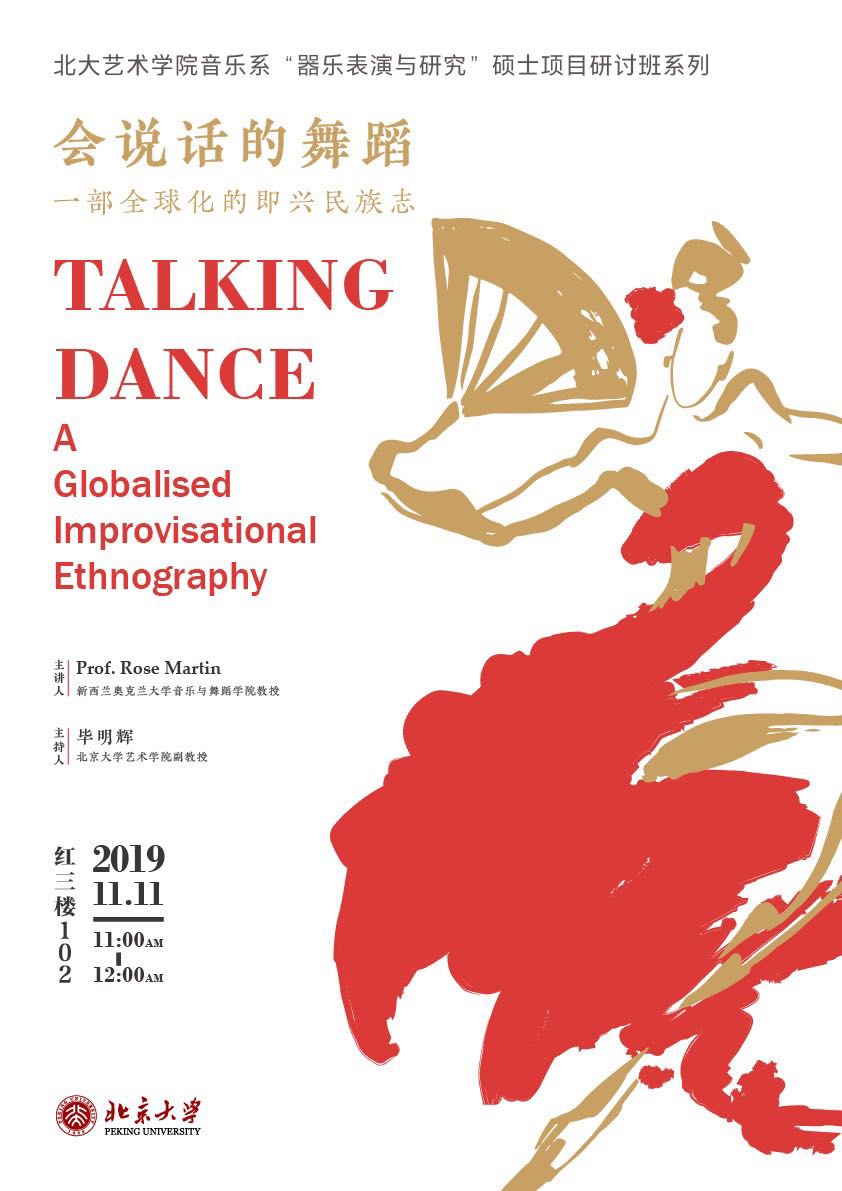[Lecture] Talking Dance: A globalized improvisational ethnography
Nov. 11, 2019
Title: Talking Dance: A globalized improvisational ethnography
Time: Nov.11, 11:00 a.m.
Venue: Room 102, Red Mansion No.3
Speaker: Rose Martin (University of Auckland)
Host: Bi Minghui (Peking University)
About the speaker: Rose Martin gained her formative dance training at the New Zealand School of Dance, Wellington, while also receiving dance learning and performing experiences in Australia, London, Canada and Japan. She subsequently worked with the Royal New Zealand Ballet as a dancer. Rose has extensive experience in research and teaching in the Middle East. She has taught at Cairo Modern Dance Company, Egypt; El-Funoun Palestinian Dance Troupe, Occupied Palestine; Jordanian National Dance Center, Jordan; Lebanese American University, Lebanon.
Abstract: This presentation shares some of the key methodological findings and reflections from a book project entitled, Talking Dance. Over the past nine years the Talking Dance project has investigated diverse stories of dance artists, teachers and learners around the world, as they negotiate cultural modernity and globalization. Through the Talking Dance project the notion of ethnographic fieldwork being improvisatory in nature has emerged (Cerwonka & Malkki, 2008). Like improvisation in dance, it could be considered that improvisation in ethnography means that there is a structure, task or idea motivating actions, it is not entirely random, but within the frame created there are many possibilities about how events might unfold. The improvisational nature of ethnography extends into the strategic and ethical choices that often have to be made instantaneously in the middle of an interview or during a moment of observation. Within the context of the Talking Dance books, multi-sited ethnography (Falzon, 2016; Marcus, 1995, 1998) that leans on this approach of improvisation is used as an interpretive way of knowing, with the research unfolding in real time and requiring a significant amount of thinking on one’s feet. This presentation seeks to disentangle some of these improvisational encounters, while simultaneously questioning the invisible theatre (Boal, 1985, 1992) of ethnography involving strategic provocation and an improvised dramatic script to trigger responses, engagement and exchange. The Talking Dance books seek to explore the unique narrative of individuals and wider cultural concerns, in all their messy, confusing, exciting chaos. Through this presentation of methodological reflections there is the opportunity to actively unpack and critically reflect on the intersection between improvisation and methodology.
Edited by: Huang Weijian
